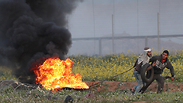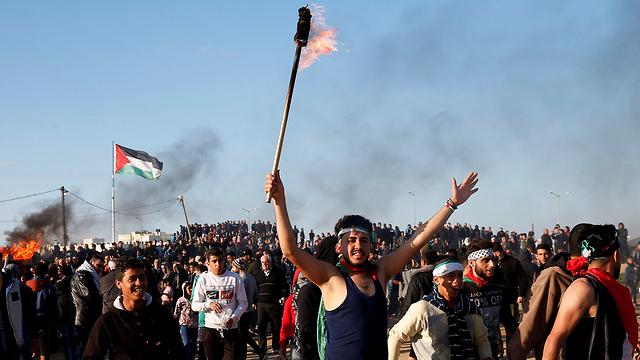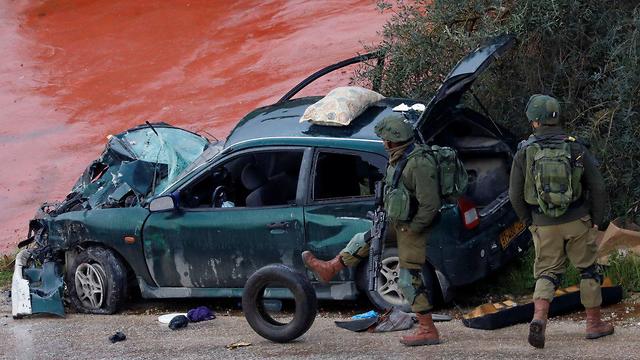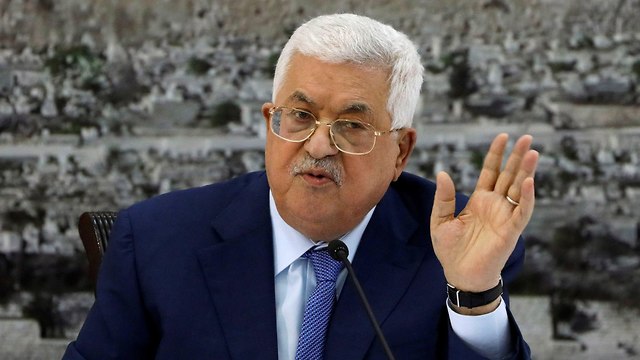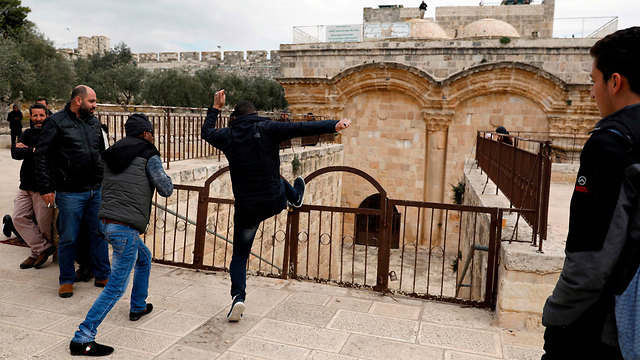While all four issues are extremely volatile for different reasons, violence erupting with just one of them could be enough to set the other three aflame.
The West Bank
Palestinians in the West Bank could face fresh hardship after the Palestinian Authority rejected the transfer of roughly $130 million in monthly tax revenues gathered by Israel on its behalf. The PA, under Palestinian President Mahmoud Abbas, is refusing the funds in protest at Israel deducting from the tax revenue the stipends that the PA gives to convicted terrorists and their families .
After returning in full the money it had so far received from Israel, totalling some half a billion of shekels (approx. $138 million), the PA announced it would continue paying salaries to prisoners and the families of terrorists.
PA senior officials said the deficit caused by Abbas's decision is only expected to deepen, adversely impacting the Palestinian defense establishment and its intelligence outreach in the West Bank, and even helping Hamas to establish military infrastructure across the territories.
Israel's decision—while gearing up for the upcoming election—alongside Palestinian initiatives might cause further deterioration in such a fragile situation.
Moreover, senior officials in the Israeli defense establishment said that the relative calm prevailing in the West Bank depends on economic development, which was seriously damaged by the deduction of terrorists' salaries from PA funds and Abbas's subsequent decision.
"The balance of stability is facing a serious challenge. One such example is Monday's car-ramming attack carried out by three Palestinians affiliated with the Hamas terror organization," said one of the senior officials. The attack near Ramallah left an Israel Defense Forces officer seriously wounded and a Border Policeman lightly hurt.
The Gaza Strip
Hamas has been increasing the rate at which it dispatches explosive devices tied to balloons from the coastal enclave into Israel, in addition to the resumed night time clashes on the Gaza border, with Palestinian hurling dozens of Molotov cocktails at the security fence.
In response, the IDF has stepped up its activity in the Strip. Over the last five days, the army launched four attacks on Hamas observation posts, which might trigger another round of fighting along the Gaza border.
East Jerusalem
The Waqf—the Islamic trust tasked with maintaining the Muslim structures at the site—forcefully and illegally reopened a small compound in the eastern part of the Mount, on the inner side of the Golden Gate entrance. The compound, called Bab a-Rahema, has been closed in recent years because the banned Islamic Movement used it as meeting place.
In the meantime, Muslims are praying at the compound every day, with Israel refraining from shutting it down.
Nonetheless, the police have carried out extensive arrests and issued restraining orders instructing senior Waqf officials as well as Palestinian activists to stay away from the Temple Mount. In response, the Waqf announced a protest would take place on Friday outside of the Al-Aqsa Mosque. A similar move was taken a year and a half ago when the crisis over using metal detectors at the Temple Mount compound erupted into violence in East Jerusalem.
Meanwhile, the Jerusalem Magistrate's Court on Monday issued an order to close the Bab a-Rahema compound. The order will come into effect next week.
Security prisoners jailed in Israel
The Public Security Ministry decision to install cell phone jammers in jails housing Palestinian security prisoners has led to a new wave of protests in those institutions. The ministry is apparently attempting to crack down on illicit phones smuggled into the prisons by visitors.
Furthermore, prisoners are threatening to go on hunger strike, in addition to the riots caused by inmates who attempted to set their clothes and property on fire.
